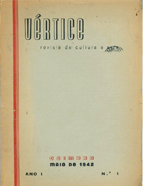

................................
This divergence took on a historiographical dimension in the controversy of 1951-1952. In an article published in Seara Nova (nos. 1226-7) on “the understanding of Antero”, Joel Serrão continued his research project on Portuguese 19th-centuryism, which was strongly influenced by the history of mentalities of the Annales, which argued, above all Lucien Febvre, that it was necessary to view a particular era as a totality in itself, with its own mentality, different from that of the present. Joel Serrão intended to apply this principle to the study of contemporary Portugal, frequently warning his readers of the dangers of anachronism, especially regarding a period so close to the present. He warned of the risk of considering Antero “our contemporary”, thereby disregarding all scientific studies of the mentality of 19th-century man, which differed in many ways from the mentality of men in 1950. Although he did not mention it, Joel Serrão was referring to some interpretations made by Piteira Santos and Manuel Mendes precisely about Antero. In his scathing response, Piteira Santos rejected any accusation of anachronism in his interpretation, since “the notion of seriousness, the notion of coherence, the notion of honour were not significantly different from those of our time. And even then it was customary, and a duty, to honour political commitments” (no. 98, Oct. 1951, 516). He sought, “without distorting historical science”, to distance himself from Joel Serrão’s “scientifically driven” perspective. Instead, it was Antero’s example and current relevance that interested him, accusing Joel Serrão of failing to understand “the true meaning of the debate in which, out of mere civic duty, we are engaged”. This civic duty involved affirming the model of the interventionist intellectual, as the following condemnation of two prominent figures of 19th-century Portuguese culture reveals: “neither olive oil producers in Vale de Lobos, nor suicides on a misty island: neither fugitives nor defeated; the things and people of this Lusitanian land deserve better”. Piteira Santos was reviving an idea of Raul Proença who, using the same images, noted the absence among us of a “hero”, of “a great master of moral action” (quoted by Joel Serrão, “Aproximação do pensamento de Raul Proença” [Approach to the thought of Raul Proença], 1971, 26).
This work is financed by national funds through FCT - Foundation for Science and Technology, I.P, in the scope of the projects UIDB/04311/2020 and UIDP/04311/2020.
